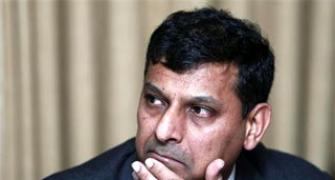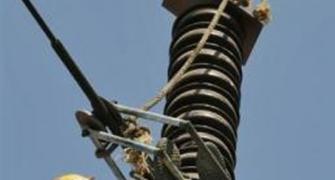A reversal of policy at this juncture could jeopardise the recent gains on inflation
 With the Consumer Price Index falling to 5.5 per cent in the month of October, below the Central Banks 6 per cent target by January 2016, there is growing pressure on the RBI to stimulate growth by cutting interest rates.
With the Consumer Price Index falling to 5.5 per cent in the month of October, below the Central Banks 6 per cent target by January 2016, there is growing pressure on the RBI to stimulate growth by cutting interest rates.
While, monetary policy is a conventional tool to boost investment growth, a new study from Crisil says that a rate cut right now may not spur growth significantly. Arguing that the current slowdown is largely due to “government policy and slowing domestic demand”, the report says that “a reversal of policy at this juncture could jeopardize the recent gains on inflation.”
Examining two different time periods, the high growth phase between 2004 and 2008 and the last two financial years of sub 5% growth, the report presents data to drive home the point that investment growth, particularly private corporate investment, plummeted in fiscal years 2013 and 2014 despite low real interest rates.
During 2013 and 2014, the real policy rate which is essentially the repo rate minus retail inflation measured by the consumer price index was negative, while real lending rates averaged 2.4 per cent. This was significantly lower than the 7.4 per cent estimated during the years between 2004 and 2008. But despite the lower rates, investment growth fell sharply from 16.2 per cent in the pre crisis years to 0.3 per cent.
Thus, making the case for a status quo on monetary policy, the report says that it was the combination of policy uncertainty and a sharp slowdown in domestic demand that slowed investments rather than the level of interest rates.
According to Madan Sabnavis, chief economist at Care ratings, “Demand continues to remain weak as witnessed in the IIP data. As capacity utilization rates continue to remain low, an increase in demand could be met by raising capacity utilization levels. This means that there is no incentive to launch new investments. Consumption will rise only when inflation comes down.”
The Crisil report also points out that high inflation, “By discouraging consumption demand, eroding export competitiveness and raising input costs for corporates, has made the situation worse.”
But while inflation as measured by CPI has come down sharply over the past few months, economists expect the recent moderation in inflation to be transitory in nature due to the base effect and with continued uncertainty on the impact of a deficient monsoon on agricultural production.
Further, household inflation expectations continue to remain elevated. As higher inflation expectations drive up inflation which in turn reinforces the expectations, pursing a tight monetary policy to curb household inflation expectations which have been deeply entrenched, is being advocated.
On the other side of the debate is economist Surjit Bhalla, who writing in the Indian Express argues that “at least in India, monetary policy has had precious little effect on inflation”, RBI should cut interest rates to stimulate growth.
While there exists a sharp divide among economists on RBI’s stance on monetary policy, on the degree to which a loose monetary policy can propel growth in the current environment, Sabnavis, argues that “A lower interest rate regime can stimulate investment growth to the extent that high cost of financing is a deterrent for certain infrastructure projects. A company that wants to issue a long term bond to finance its infrastructure project may want to wait for lower interest rates, which could delay fresh investments.”
But, according to Aditi Nayar, senior economist at ICRA, “Higher interest rates are not the binding constraint to growth in several sectors. While a rate cut would boost sentiment and ease pressure on debt servicing, it may not translate into a major revival of growth unless issues related to land acquisition, labour issues and specific concerns for the coal and power sectors are addressed.”
As a majority of the projects which have been cleared by the Project Management group (PMG) belong to the power and coal sectors which remain engulfed in policy uncertainty, lower interest rates may not spur investment in these sectors.
The Central Bank is expected to continue with the tight monetary policy stance till the first quarter of the next financial year, by when inflation would probably be firmly under control. Thus, the government must bear the burden of boosting growth by improving the policy environment.










